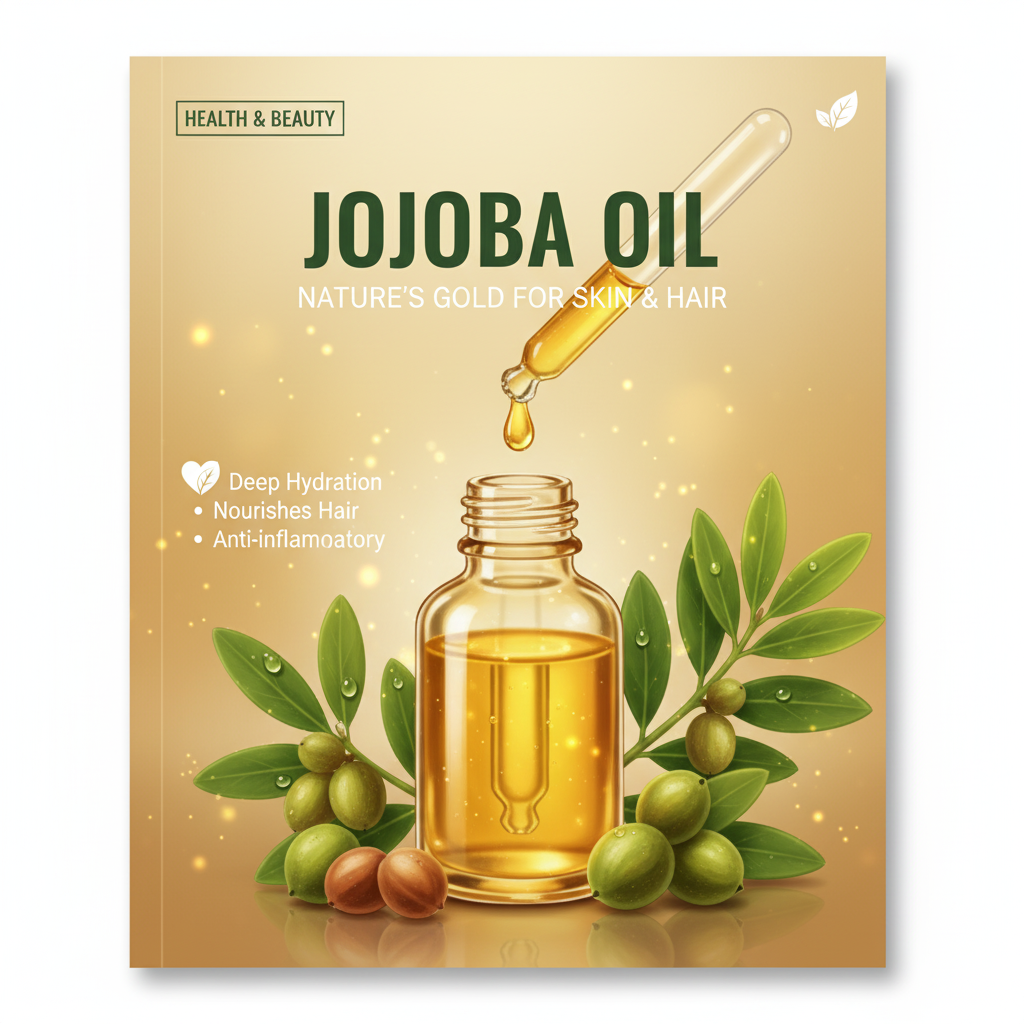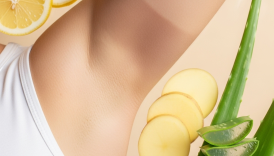Jojoba Oil for Skin: A Natural Elixir for Skin, Hair, and Overall Wellness

Jojoba oil for skin is one of the most versatile natural oils known for its nourishing and healing benefits. In the world of natural skincare and holistic wellness, jojoba oil has earned a reputation as one of the most versatile and beneficial oils. Extracted from the seeds of the jojoba plant (Simmondsia chinensis), which is native to Arizona, California, and Mexico, this golden liquid has been used for centuries. Indigenous tribes valued jojoba oil for wound healing, skin protection, and even during childbirth. Today, it has become a staple ingredient in cosmetics, skincare, haircare, and even pharmaceutical products.
- Jojoba Oil for Skin: A Natural Elixir for Skin, Hair, and Overall Wellness
- What Is Jojoba Oil?
- Key Benefits of Jojoba Oil
- 1. Deep Moisturization
- 2. Balances Oil Production
- 3. Anti-Aging Properties
- 4. Healing and Anti-Inflammatory Effects
- 5. Benefits for Hair and Scalp
- 6. Protection Against Environmental Damage
- How to Use Jojoba Oil
- For Skin
- For Hair
- For Body
- Jojoba Oil in the Cosmetic Industry
- Potential Side Effects and Precautions
What makes jojoba oil stand out is its unique chemical structure. Unlike most plant oils, it is actually a liquid wax ester that closely resembles the skin’s natural sebum. This similarity allows it to be easily absorbed without clogging pores, making it suitable for all skin types.
In this article, we will explore the benefits of jojoba oil for skin, hair, and overall health, how to use it effectively, and potential precautions to keep in mind.

What Is Jojoba Oil?
Jojoba oil is obtained by cold-pressing the seeds of the jojoba plant. It is rich in essential fatty acids, vitamin E, vitamin B complex, zinc, copper, and powerful antioxidants. Unlike many other natural oils, jojoba oil is remarkably stable and does not easily oxidize, which makes it an excellent choice for long-term use in skincare formulations.
Its non-greasy texture, moisturizing properties, and antimicrobial effects make it a favorite among dermatologists and cosmetic chemists. From lotions and serums to shampoos and conditioners, jojoba oil is found in a wide range of personal care products.
Key Benefits of Jojoba Oil
1. Deep Moisturization
One of the greatest benefits of jojoba oil for skin is its ability to lock in moisture. Its composition mimics the skin’s natural oils, helping to balance hydration levels. Unlike heavy creams, jojoba oil penetrates deeply without leaving a greasy residue.
- Ideal for dry, flaky skin
- Helps strengthen the skin barrier
- Prevents moisture loss in harsh climates
2. Balances Oil Production
Oily and acne-prone skin can benefit from jojoba oil because it regulates sebum production. By sending signals to the sebaceous glands, it prevents the overproduction of oil that leads to clogged pores and breakouts.
- Non-comedogenic (does not block pores)
- Reduces acne and blackheads
- Restores skin’s natural balance
3. Anti-Aging Properties
Rich in antioxidants, particularly vitamin E, jojoba oil combats free radical damage that accelerates skin aging. Regular use can help minimize fine lines, wrinkles, and sagging skin.
- Stimulates collagen production
- Improves skin elasticity
- Reduces the appearance of fine lines
4. Healing and Anti-Inflammatory Effects
Jojoba oil is widely used for its soothing properties. It can calm redness, irritation, and inflammation caused by eczema, psoriasis, or rosacea. Its antimicrobial nature also helps prevent infections in minor wounds.
- Soothes sunburn and skin irritation
- Promotes wound healing
- Reduces inflammation and redness
5. Benefits for Hair and Scalp
When it comes to jojoba oil for hair, its nourishing properties cannot be overstated.
- Moisturizes dry scalp and reduces dandruff
- Strengthens hair strands and prevents breakage
- Encourages healthy hair growth by unclogging follicles
- Adds shine and volume to dull, lifeless hair
6. Protection Against Environmental Damage
Jojoba oil acts as a protective barrier against pollutants, UV radiation, and harsh weather. When used regularly, it shields both skin and hair from environmental stressors.
How to Use Jojoba Oil
For Skin
- As a Moisturizer: Apply a few drops directly to clean skin or mix with your daily face cream.
- Makeup Remover: Dab jojoba oil onto a cotton pad to remove makeup gently without stripping natural oils.
- Massage Oil: Combine with essential oils like lavender or tea tree for a relaxing massage.
- Acne Treatment: Use a thin layer at night to regulate sebum and reduce inflammation.
For Hair
- Pre-Shampoo Treatment: Massage jojoba oil into the scalp, leave it for 15–20 minutes, then wash.
- Leave-In Conditioner: Apply a few drops to damp hair to tame frizz and add shine.
- Scalp Therapy: Mix jojoba oil with rosemary oil to stimulate hair growth.
For Body
- Bath Oil: Add a few drops to your bath for silky, hydrated skin.
- Cuticle Care: Massage into nails and cuticles to prevent dryness and brittleness.
- Lip Balm: Use directly on dry lips for long-lasting hydration.
Jojoba Oil in the Cosmetic Industry
Due to its stability and compatibility with other ingredients, jojoba oil is a common additive in:
- Sunscreens and moisturizers
- Anti-aging creams
- Shampoos and conditioners
- Body lotions and massage oils
- Lip balms and serums
Its role as a natural preservative and stabilizer makes it a sustainable choice for eco-friendly beauty products.
Potential Side Effects and Precautions
While jojoba oil is generally safe, a few precautions should be considered:
- Always perform a patch test before first use to check for allergies.
- Pregnant and breastfeeding women should consult a doctor before using concentrated jojoba oil.
- Avoid ingestion, as it may cause digestive issues.
Jojoba oil is truly a multi-purpose natural oil that offers remarkable benefits for both skin and hair. Its ability to moisturize, heal, and protect makes it a must-have in any natural beauty routine. Whether you are battling acne, dryness, premature aging, or hair damage, jojoba oil provides a gentle yet effective solution.
As consumers continue to seek natural and sustainable alternatives, jojoba oil is likely to remain a cornerstone in skincare and haircare products worldwide. Adding a bottle of this golden oil to your daily routine may just be the best decision for your long-term wellness and beauty.




